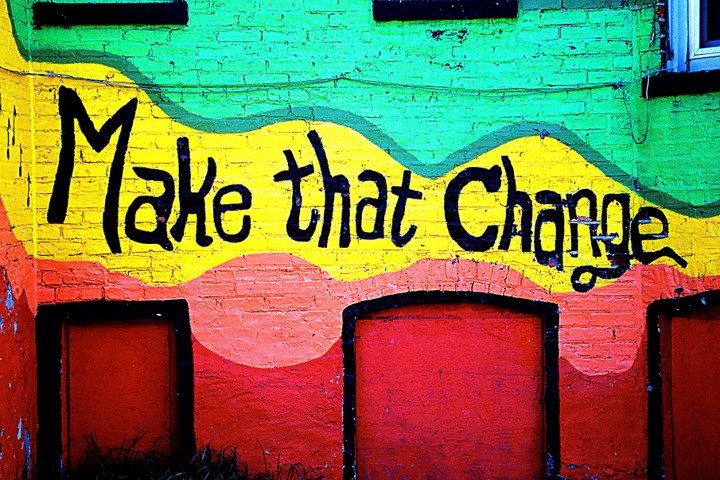By: Peter Gilbert, Supervising Attorney, Fair Housing Project, Legal Aid of North Carolina
HUD issued a Letter of Findings of Noncompliance against the City of Chicago earlier this year, following an investigation conducted in response to a complaint filed by community groups. The complaint alleged that the City discriminated on the basis of race and national origin by causing and facilitating the relocation of a large metal recycling facility from a majority White neighborhood to a majority Black and Latino neighborhood, and through a broader policy of constraining industrial and other polluting land uses to majority Black and Latino areas, and relocating polluting facilities from predominantly White communities.
According to HUD’s findings, following meetings with city officials, General Iron closed its recycling facility in Lincoln Park, an 80% white neighborhood on the north side of Chicago, with plans to move it to the Calument Industrial Corridor, an area at the intersection of three neighborhoods which are more than 80% Black or Hispanic on Chicago’s Southside. This area of Chicago is already disproportionately burdened with polluting facilities, both in terms of the number of sites and the quantity of toxic substances. Indeed, documents published by the Chicago Department of Public Health in 2016, 2020, and 2022, all identified the Southeast Neighborhoods as the most burdened by pollution and its negative health effects. See HUD, Letter of Findings of Noncompliance with Title VI and Section 109, Case No.: 05-20-0419-6/8/9, Pg. 5, (July 19, 2022) (internal citations omitted).
HUD found that the complaints from Lincoln Park residents about the environmental impact of the Lincoln Park facility were voluminous. There were two fires in 2015 at the facility; that same year an alderman was elected to represent Lincoln Park, who made promises to remove the facility from their neighborhood. According to HUD’s findings, in 2016, the City began speaking with General Iron about relocating its facility. General Iron later agreed, with promises of assistance from the City. HUD found that “[a]t no time during this close coordination with the Companies did the city raise concerns about the impact of the relocation on the Southeast Neighborhoods nor any mitigation measures to offset these impacts.” See HUD, Letter of Findings of Noncompliance with Title VI and Section 109, Case No.: 05-20-0419-6/8/9 (July 19, 2022).
In 2020, a coalition of community-led groups: the Southeast Environmental Task Force, the South East Side Coalition to Ban Petcoke, and People for Community Recovery, filed a complaint with HUD under Title VI and Section 109 of the Housing and Community Development Act of 1974, alleging that the City of Chicago was discriminating on the basis of race in causing this relocation and its broader policy of “constraining industrial and other polluting land uses to majority Black and Hispanic areas and relocating polluting facilities from predominantly White areas.”
In its Letter of Findings, HUD specifically looked at the disparate impact of this particular relocation and Chicago’s long history of encouraging the concentration of environmental hazards in Black and Brown neighborhoods. HUD also found that the “unusually close collaboration between the City and the Companies,” and its deviation from normal processes were evidence supporting the finding of discrimination.
HUD recognized that the City had made no effort to negotiate for any mitigation of pollution at the prospective site, considered no alternative sites, and persistently ignored the concerns of both Southeast residents and experts who raised the already existing disparities in “environmental burdens and their health effects.” HUD found that the City had offered no non-discriminatory alternative that was raised at the time the move was planned, merely “post hoc justifications,” which HUD found to be pretextual.
Finally, HUD found that the “City had failed to timely and fully produce requested information…severely delayed the production of some requested materials without good cause, and [that] documents…produced to the press or other requesters…[had] not been produced to [HUD], despite being responsive to [HUD’s] request for information. Id. at 2.
HUD’s findings urge voluntary compliance by the City.
Title VI and Section 109 both prohibit discrimination in programs receiving federal funding. The City receives and distributes federal financial assistance from HUD under the Community Development Block Grant program. The City also signs civil rights certifications
Although this complaint was broad under Title VI and Section 109, similar racial disparities in the siting of polluting facilities may also implicate the Fair Housing Act. In North Carolina, in 2011, the Royal Oak Concerned Citizens Association filed suit against Brunswick County, NC, alleging violations of the North Carolina State Fair Housing Act for a “pattern and practice of racial discrimination by Defendant, culminating in Defendant’s decision to rezone property in Plaintiffs’ community to accommodate the expansion of an existing landfill.” Royal Oak Concerned Citizens Ass’n v. Brunswick Cty., 233 N.C. App. 145, 756 S.E.2d 833 (2014). The case ultimately settled without the landfill expansion.
More from this Newsletter Issue: December 2022
Subscribe to the Newsletter

